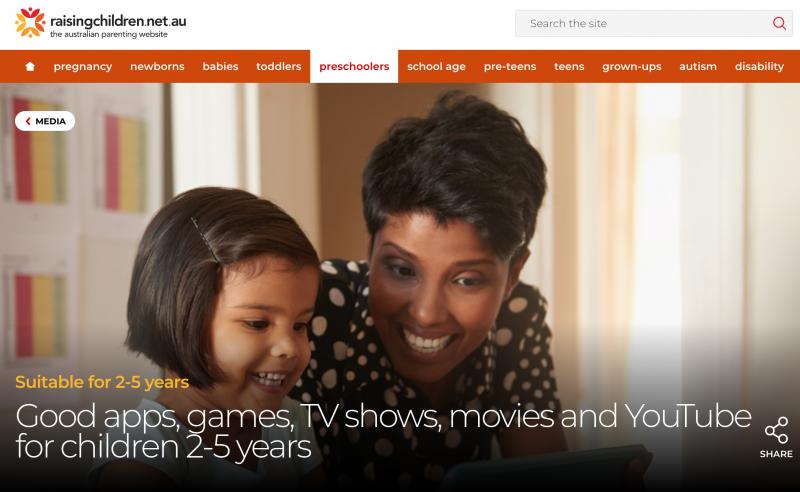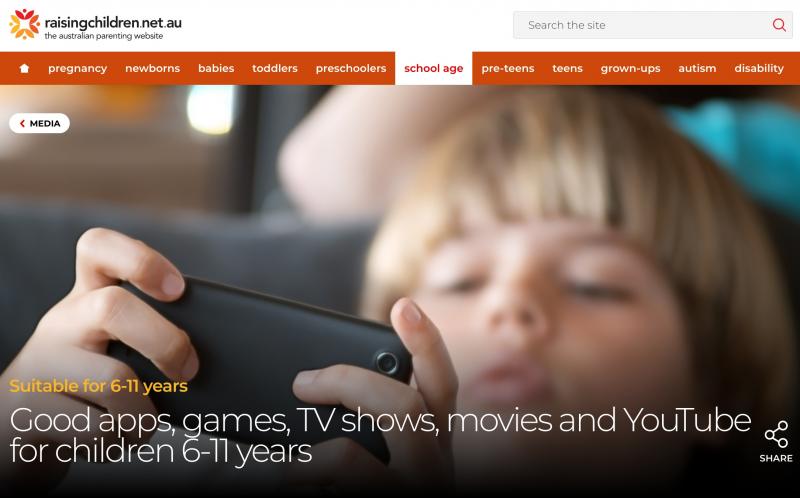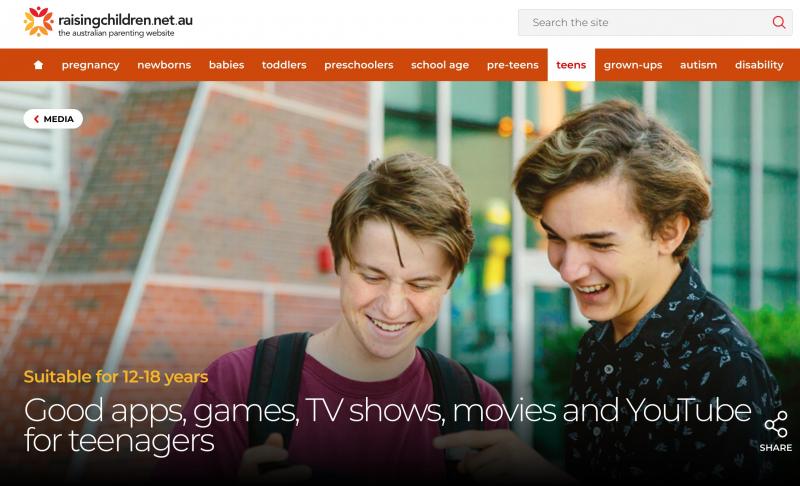Positive Aspects Of Screen Time for Children & Young People
Positive Aspects Of Screen Time for Children & Young People
Screens are becoming a big part of everyday life for many tamariki (children) and rangatahi (young people). Much of the advice around screen time for tamariki and rangatahi focuses on its negative impact. While it is important to monitor your child’s screen time, there are some benefits to supporting your child's healthy engagement with screens.
Key points about the benefits of screen time
- screens are becoming a big part of everyday life for many tamariki and rangatahi
- there are some positives for tamariki and rangatahi when they use technology in a healthy way
- research shows that too much screen time can impact your child's health and well-being
- see below for tips on how you and your child can make the most of screen time
What is screen time?
Screen time refers to the total time someone spends using electronic devices with screens. Activities that tamariki and rangatahi do during screen time include watching videos, playing games, interacting on social media, and browsing the internet.
What are the benefits of screen time for my child?
It is important to monitor your child’s screen time, but there are lots of benefits in supporting your child to engage with screens in a healthy way.
Educational opportunities
Screens give tamariki and rangatahi access to educational apps, websites and games that can provide valuable learning experiences. There are programs designed to help them develop their literacy and numeracy skills as well as learn problem-solving skills and critical thinking.
Information
The internet offers a wealth of information. If navigated in a safe way, tamariki and rangatahi can explore a wide range of topics and find educational resources. This access to information helps to improve their knowledge and develop research skills.
Skill development
Some video games and online activities may help tamariki and rangatahi improve skills such as problem-solving, spatial reasoning, and strategic thinking. They can also improve fine motor skills and hand-eye coordination. Researchers are looking at how gaming can help support tamariki who have learning difficulties.
Social connections
It’s important for tamariki and rangatahi to balance socialising online with face-to-face socialising. But when face-to-face socialising is not possible, online platforms can help keep you connected with friends and whānau. This can help tamariki and rangatahi to feel less lonely and isolated.
Creativity
Creative software allows tamariki and rangatahi to explore and express their artistic talents. There are lots of screen time programs that can help tamariki and rangatahi develop their creative skills. These include digital illustration, music composition, website building and more.
Global awareness
The internet provides access to a wide range of cultural and educational content. When access to this information is safe and supervised, tamariki and rangatahi can access lots of different perspectives, languages, and cultures. This information helps tamariki and rangatahi to develop global awareness.
The internet can also introduce rangatahi to community and advocacy groups. This allows them to express themselves and support causes they are passionate about.
Future job opportunities
Because technology has become a big part of our daily lives, many jobs now require an understanding of it. Learning digital skills and coding at a young age may help prepare rangatahi for future job opportunities in the technology industry and other fields.
Specialised resources
Technology is being used to help meet the needs of tamariki and rangatahi who have learning difficulties. For tamariki and rangatahi with special needs, certain apps and programmes can offer tailored learning experiences and support. This can help them with communication and support them to develop new skills.
Family engagement
Screen time can also be an opportunity for parents and whānau to engage with their tamariki. This is particularly useful for educational screen-based activities. Watching educational content or playing educational games together can help your child get the most out of their screen time.
See the Raising Children Australia website for more information about the benefits of technology for different age groups.
Good apps, games, TV shows, movies and YouTube for children 2-5 years.
Good apps, games, TV shows, movies and YouTube for children 6-11 years.
Good apps, games, TV shows, movies and YouTube for teenagers.
How can I support my child to get the most out of their screen time?
Research shows that combining positive screen time role modelling while involving your child in rule-making can help them better use and manage their screen time. It is important to monitor the nature of the content your child is watching to check it is appropriate for them.
For more ideas see the KidsHealth page on tips for managing your child's screen time
Develop a family technology plan
It can be useful to develop a family technology plan to set some ground rules for healthy screen use for the whole whānau. Involving your child in developing this plan helps open a conversation about their screen use. This allows you to support your child to engage with screens in a healthy way.
See the KidsHealth page on making a family technology plan for more information
Current knowledge and developing research
Researchers are continuing to better understand the impact of screen time on tamariki and rangatahi. A lot of existing knowledge comes mainly from observational research. This sort of research makes it challenging to separate the effects of screen time from other factors influencing a child's health and development. Most of the research to date is based on TV watching. Other screen types, like smartphones and gaming devices are actively being researched.
This page last reviewed 18 August 2024.
Do you have any feedback for KidsHealth?
If you have any feedback about the KidsHealth website, or have a suggestion for new content, please get in touch with us.
Email us now


